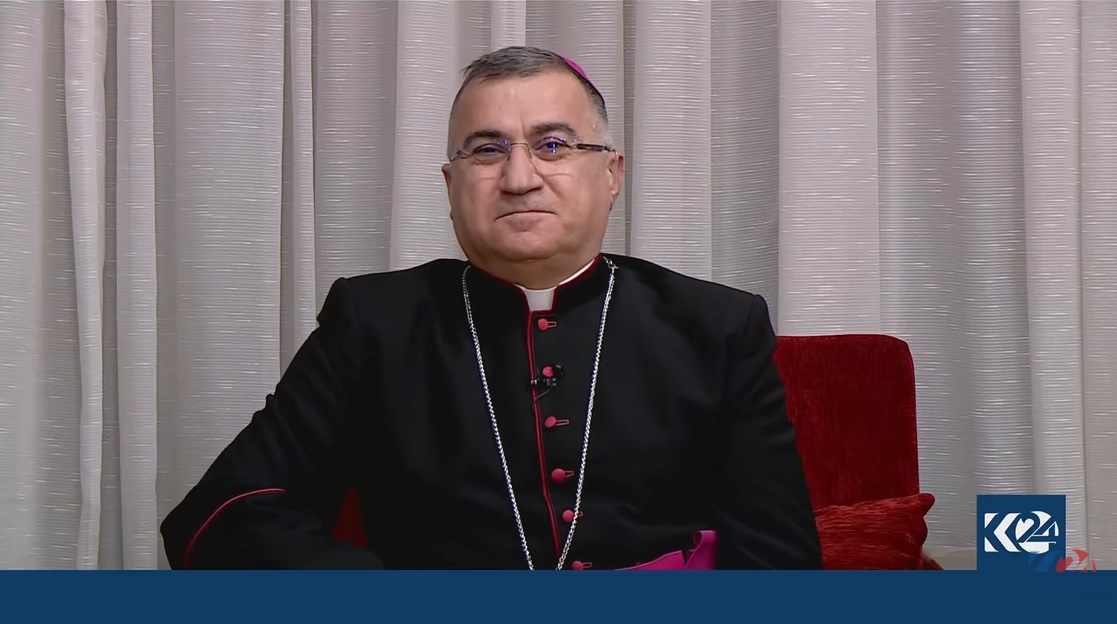Archbishop Bashar Warda praises decision to turn Erbil's Ankawa into district
It is a "very important decision for Ankawa," Archbishop Warda said, highlighting the newly-inaugurated district as a success story of coexistence common to Erbil.

ERBIL (Kurdistan 24) – The Chaldean Archbishop of Erbil, Bashar Matti Warda, Monday evening praised the decision to convert Ankawa into a district, describing it as a "strategic" move, as he called on Kurdistan's Christians to remain in the region and invest in their communities.
The statement came in an interview with Kurdistan 24 after Kurdistan Region Prime Minister Masrour Barzani declared Ankawa a district of its own earlier in the day.
Barzani affirmed in a tweet thread, "Ankawa will be the biggest district of Christians in the Middle East," adding that the move "gives Christians, and other groups, rights to nominate civic leaders, appoint officials, manage their own security and directly shape their destinies."
It is a "very important decision for Ankawa," Archbishop Warda said, highlighting the area as a success story of coexistence common to Erbil.
The religious figure explained that Christians have sought refuge in Ankawa since 2003 when they were getting targeted for their beliefs in Baghdad, Basra, Kirkuk, and Nineveh provinces.
As ISIS overran a third of Iraq, Ankawa reportedly welcomed 13,000 more Christain families throughout the country.
Archbishop Warda explained that Christians have been "collateral damage" in Iraq's sectarian conflicts for decades, adding that their situation only worsened after the fall of the former Saddam Hussein-led regime.
However, "Christians have found in Ankawa a place for coexistence and economical, and social prosperity."
He also thanked the Kurdistan Regional Government (KRG) for designating the area a district and stated that the move would have "positive results on public services" residents of the area benefit from.
Archbishop Warda then urged Christians to stay in Iraq and the Kurdistan Region, in particular.
"We are trying to implement many projects such as schools, universities, and hospitals," he said, affirming, "our confidence in the future of Kurdistan makes us encourage Christians not only to stay but also to invest in this region."
